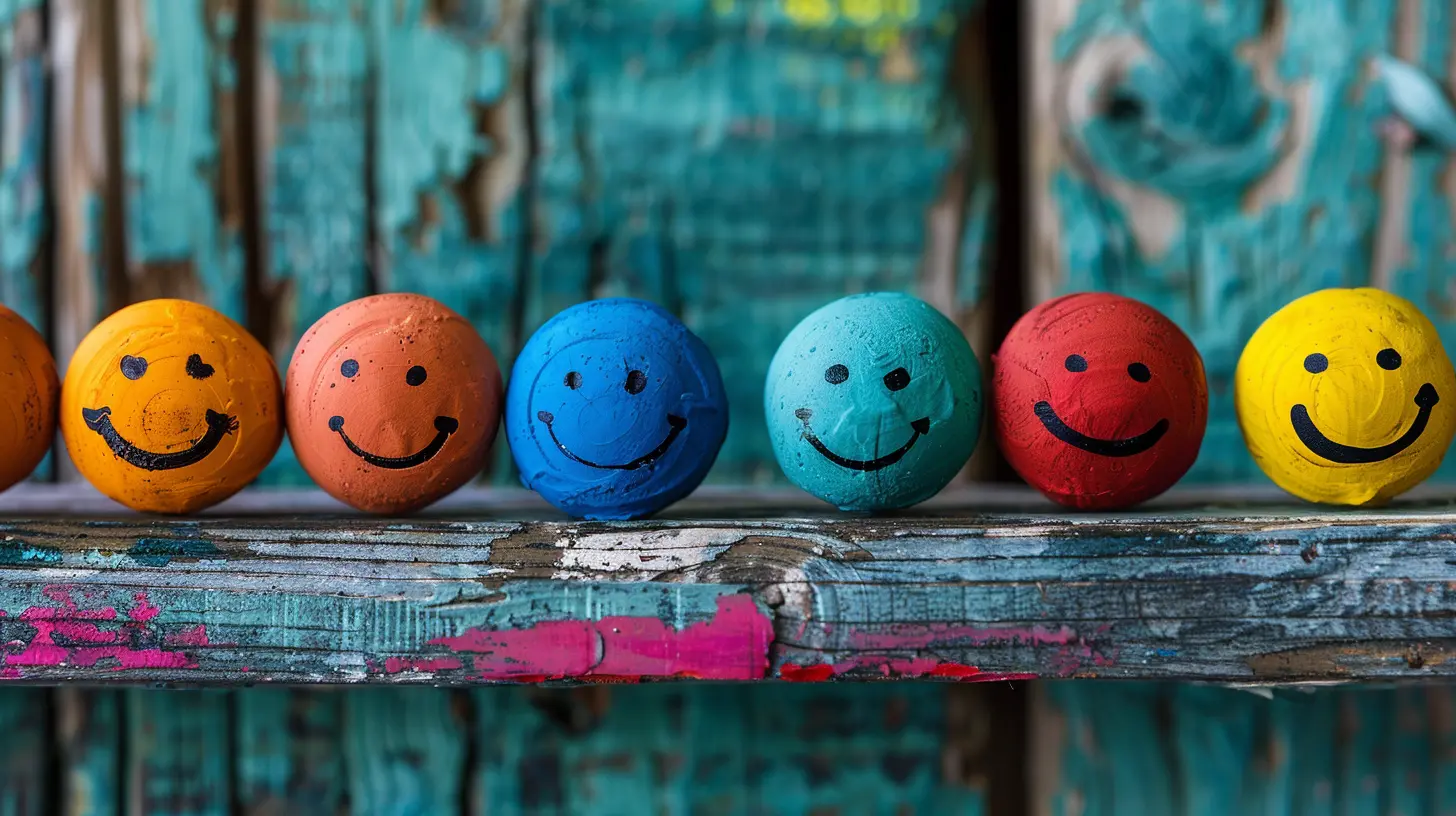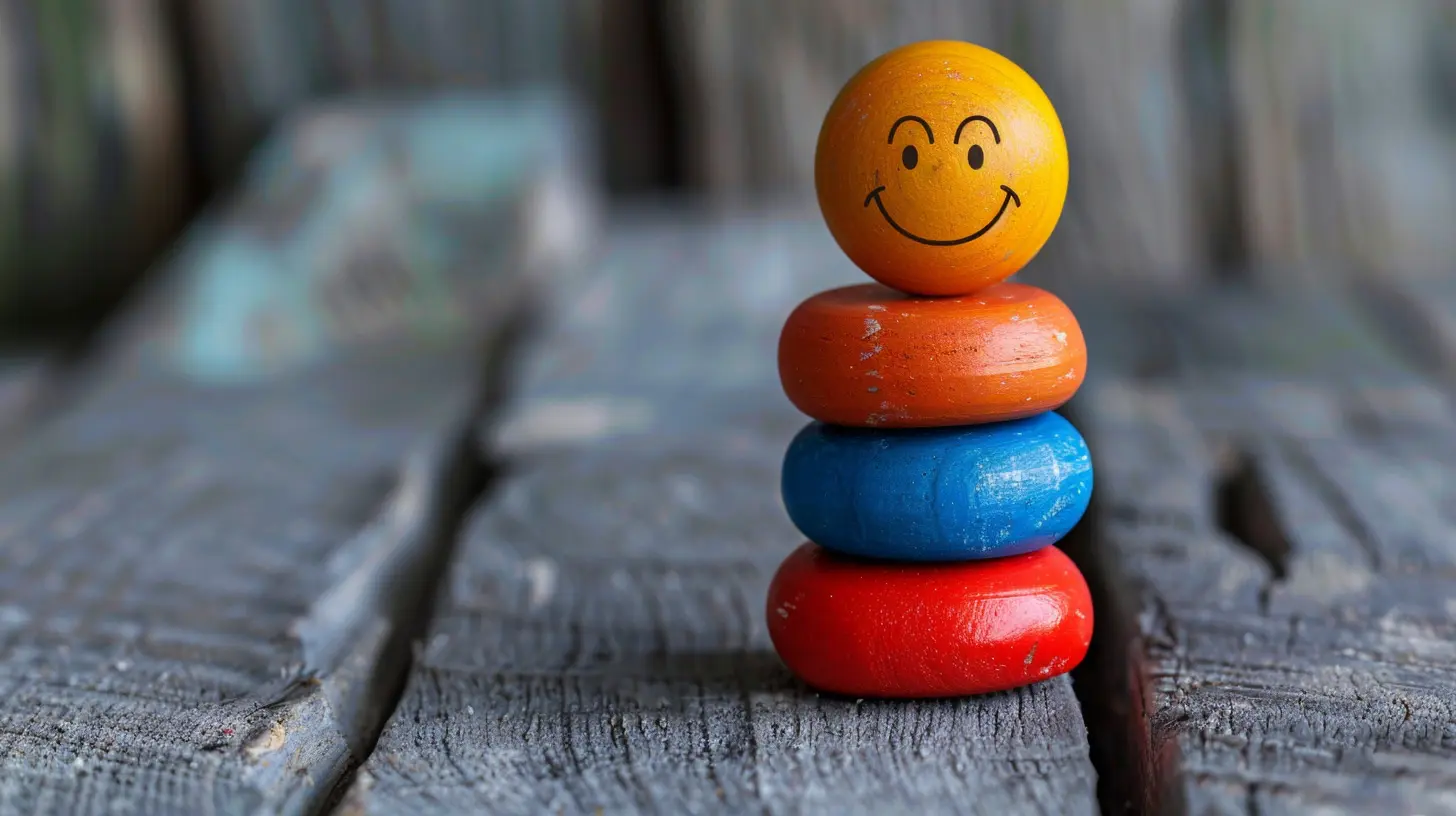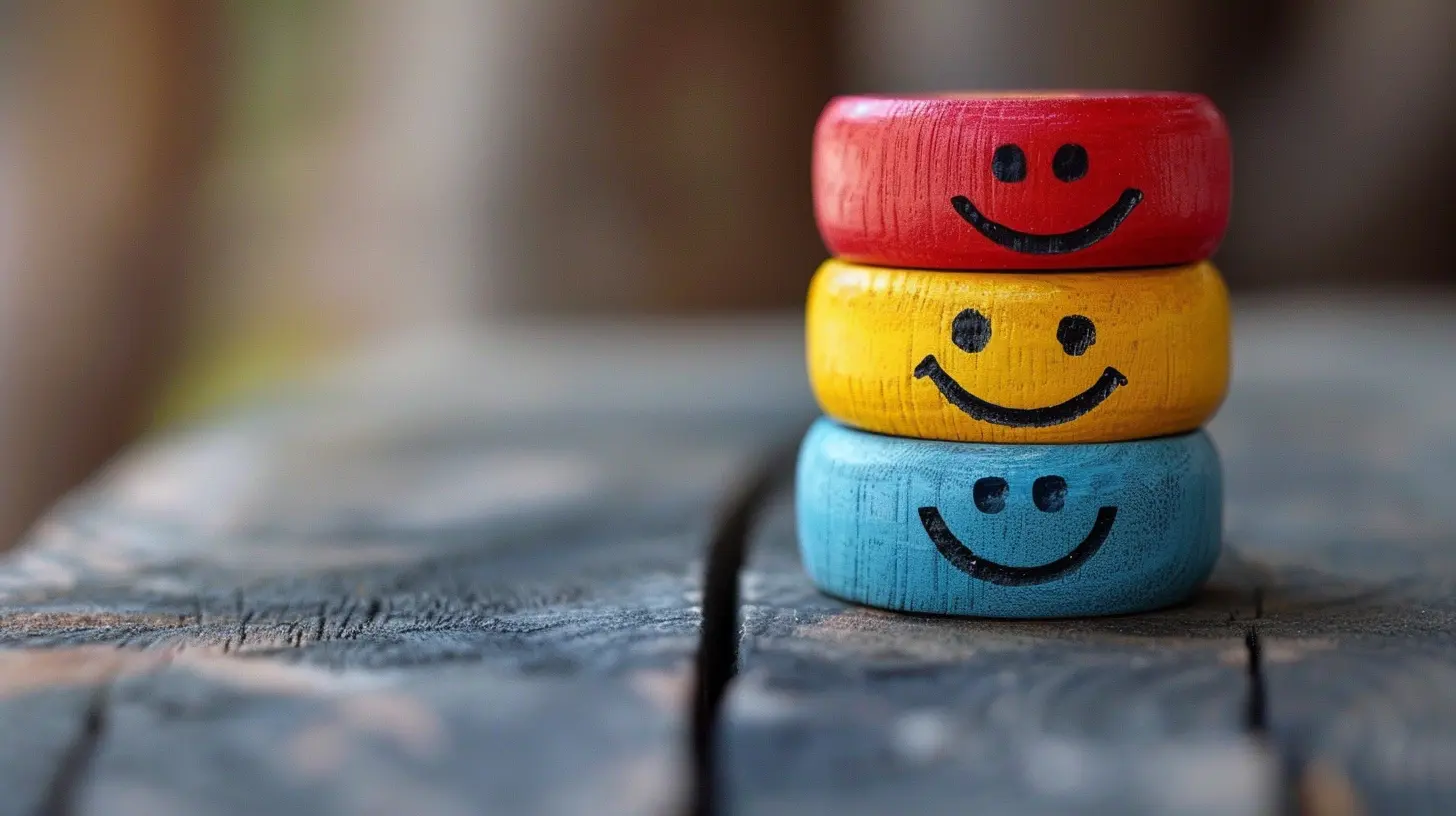The Importance of Play for Adult Emotional Health
27 September 2025
When’s the last time you played? Not “played” like hitting the gym or scrolling through memes—genuinely played. Think board games, dancing like no one's watching, or jumping into a spontaneous game of charades. If that question stumps you, you’re not alone. Most of us traded in playtime for deadlines, to-do lists, and meetings a long time ago. But here’s the kicker: we may be paying a steep emotional price for that swap.
It turns out, play isn’t reserved just for kids. In fact, for adults, play can be a powerful tool—almost like an emotional multivitamin. It supports our mental well-being, nurtures relationships, and helps us navigate life’s daily stressors with more resilience and joy. Let's dig deeper into why play matters, especially for adult emotional health.

What is Play, Really?
Before we go any further, let’s clear something up. Play isn’t just about toys or games. It’s any activity that’s done for fun, without a specific end goal. Whether it’s doodling, hiking, cracking jokes, or kicking around a soccer ball, play comes in endless forms.The common thread? Joy. Play is all about being in the moment, losing track of time, and letting go of the usual pressures.
Play Isn’t Immature—It’s Essential
There’s a huge misconception that play is juvenile, even wasteful for adults. But neuroscience says otherwise. Engaging in playful activities creates new neural pathways, boosts mood-regulating chemicals like serotonin and dopamine, and reduces the production of stress hormones like cortisol.So next time someone gives you a side-eye for being silly, just let them know—you’re actually rewiring your brain for happiness. No big deal.

The Science of Play and Emotional Health
Let’s get real for a second: life is heavy. Work stress, relationship dynamics, financial responsibilities—it all piles up. But here’s how play acts like a pressure valve for that emotional build-up.Play Reduces Stress and Anxiety
Think of your brain like a battery. Stress drains it. Play charges it. When we engage in playful activities, our bodies release endorphins—those feel-good chemicals that act like natural stress-relievers. Even 15 minutes of play can shift your mood from “grumpy adult” to “happy human.”Play Improves Emotional Resilience
Ever notice how kids bounce back quickly from setbacks? That’s partly because their lives are filled with play. Adults who infuse play into their routines tend to become more adaptable and better at handling life's curveballs. Play teaches us to laugh at mistakes and pick ourselves up—a vital skill in today’s high-pressure world.Play Boosts Creativity and Problem-Solving
Play invites your brain to think outside the box. It’s like giving your imagination permission to come out and stretch its legs. Whether you’re scribbling, role-playing, or storytelling, playful activities stimulate the brain’s creative centers—and that carries over into how you tackle challenges in real life.
Emotional Benefits of Play for Adults
Let’s break it down. The emotional perks of play aren’t just theoretical; they’re real and tangible. Here’s what play does for our emotional health:1. Enhances Mood
Feeling stuck in a funk? Play can be the emotional reboot you need. Laughing, being silly, or engaging in something spontaneous instantly uplifts your mood and reminds you that life isn’t always about grind and hustle.2. Strengthens Relationships
Whether it’s goofing off with your partner, playing tag with your kids, or cracking jokes at work, playful interactions build bonds. They create shared joy, deepen trust, and improve communication—all crucial for maintaining healthy relationships.3. Builds Self-Esteem
Play allows you to try new things without fear of failure. When you're in a playful mindset, you’re not judging yourself harshly. You're simply being. That sense of freedom boosts confidence and helps solidify your emotional foundation.4. Encourages Presence and Mindfulness
Play pulls us into the “now.” You’re not worrying about tomorrow's workload or yesterday’s faux pas when you're immersed in something fun. That kind of presence is the gateway to mindfulness—and mindfulness is a cornerstone of emotional well-being.
Types of Play Adults Should Try
You don’t have to join a dodgeball league to reconnect with your playful side (unless you want to!). There are plenty of ways to bring play back into your daily life—no matter your lifestyle or schedule.Physical Play
Think dancing, biking, swimming, or even a spontaneous pillow fight. Physical play not only exercises your body but also releases tension and gets those endorphins going.Creative Play
If you’ve ever painted outside the lines or made up a silly song, you’ve engaged in creative play. Draw, write, sculpt, decorate—whatever allows your imagination to soar.Social Play
Social play involves fun with others. Game nights, karaoke sessions, or even witty banter in the group chat count. The key is to connect with others through laughter and fun.Imaginative Play
Ever tried improv or storytelling? Imaginative play taps into your inner world. It's a great way to process feelings, explore possibilities, and let your creativity run wild.Intellectual Play
Puzzles, strategy games, or brain teasers fall into this category. They keep your mind sharp while allowing for fun and mental engagement without pressure.How to Make Time for Play in a Busy Life
We get it—life gets busy. But here’s a little truth bomb: You have time for what you prioritize. Making room for play might mean rethinking your idea of productivity.Here are a few tips:
- Schedule It – Literally block out time in your calendar for fun. If it’s not scheduled, it’s easy to skip.
- Start Small – You don’t need a whole day. Start with 10 minutes of something lighthearted.
- Unplug – Step away from screens and allow your mind to wander. Boredom is often the gateway to creativity.
- Involve Others – Invite friends or family to participate. Shared play boosts connection.
- Say Yes More – Say yes to spontaneity once in a while. Let yourself be surprised.
Play in the Workplace: Not Just Ping Pong Tables
Let’s bust another myth: Play at work isn’t about bean bags or office foosball tables (although those can help!). It’s about fostering an environment where creativity, teamwork, and laughter are encouraged.Allowing room for play in the workplace has been linked to:
- Higher job satisfaction
- Better team collaboration
- Less burnout
- Greater innovation
So go ahead—crack a joke in that meeting or initiate a 5-minute brainstorming game. It’s not unprofessional—it’s human.
Overcoming Barriers to Play
Let’s be honest. A lot of us resist play because of guilt, fear, or just plain habit. Here’s how to tackle the most common blocks:- "I don’t have time."
Start small. Five minutes of doodling while you sip your coffee counts.
- "I feel silly."
That’s the point! Embracing silliness is part of letting go and healing emotionally.
- "It’s not productive."
Actually, it is. Play boosts creativity, sharpens focus, and improves overall well-being. That’s productivity with heart.
- "I forgot how."
Then it’s time to relearn! Watch kids, revisit old hobbies, or just let your curiosity guide you.
Play as Self-Care
Think of play as one of the most underrated forms of self-care. Just like sleep, healthy food, and exercise, play nurtures your emotional ecosystem. It reminds you that you’re not a machine—you’re a human being wired for connection, creativity, and joy.Even during tough times, play can be that small light. A laugh, a moment of joy, a silly dance in the kitchen—it all counts. And over time, those little moments build a stronger, more emotionally balanced you.
Final Thoughts: Reclaim Your Right to Play
Here’s the bottom line: Play is not a luxury—it’s a necessity. In our adult lives, packed with responsibilities and stress, carving out space for play might be one of the kindest things we can do for ourselves.So the next time you're tempted to feel guilty for goofing off, remember this: you're not wasting time—you're nurturing your emotional health. And who doesn’t need a little more of that?
Go ahead—play a little. Your heart and mind will thank you.
all images in this post were generated using AI tools
Category:
Emotional WellnessAuthor:

Eileen Wood
Discussion
rate this article
1 comments
Nix Baker
Engaging in play as adults enhances creativity, reduces stress, and fosters connection, contributing significantly to emotional well-being.
October 12, 2025 at 4:54 PM

Eileen Wood
Absolutely! Play is vital for adults, as it boosts creativity, relieves stress, and strengthens connections, all of which are essential for emotional health. Thank you for highlighting this important aspect!


